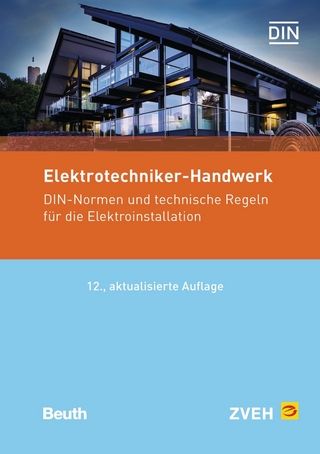
Accelerating the Transition to a Hydrogen Economy
Elsevier - Health Sciences Division (Verlag)
978-0-443-22399-0 (ISBN)
- Noch nicht erschienen (ca. Januar 2025)
- Versandkostenfrei innerhalb Deutschlands
- Auch auf Rechnung
- Verfügbarkeit in der Filiale vor Ort prüfen
- Artikel merken
Dr. Tonni Agustiono Kurniawan’s degrees include a B.Sc. in chemistry from the Bogor Agricultural University (Indonesia), a M.Sc. in environmental technology from the Thammasat University (Thailand), and a Ph.D. in applied chemical technology from the Hong Kong Polytechnic University (China). He is the author of over 130 peer-reviewed publications in ISI-rated journals, 26 conference proceedings, including 9 book chapters and 6 monographs on waste to energy and wastewater treatment. He received the 2010 Green Talent Award from German Federal Ministry of Education and Research (BMBF), the 2013 Young Scientist Award from the World Economy Forum (WEF) (Switzerland), and the 2014 Scope-Zhongyu (France) for his outstanding research contribution to the fields of study. Elsevier and Stanford University (US) listed him among the top 2% of highly cited scientists in the field of Environmental Sciences. Majeti Narasimha Vara Prasad is Emeritus Professor in the School of Life Sciences at the University of Hyderabad in India. He has published over 216 papers in scholarly journals and edited 34 books. He received his doctorate in Botany from Lucknow University, India in 1979. Based on an independent study by Stanford University scientists in 2020, he figured in the top 2% of scientists from India, ranked number 1 in Environmental Sciences (116 in world). He is also serving as reviewer in many scientific journals. He is professional member of National Institute of Ecology New Delhi, India, Bioenergy Society of India, New Delhi, Indian Network for Soil Contamination Research, New Delhi. He also completed 20 research projects.
Section I: A transition towards net zero emission in a hydrogen economy 1. Hydrogen development drivers and barriers, including application cost and feasibility 2. Hydrogen in low-carbon economies and its affordable implementation 3. Challenges and opportunities of hydrogen economy in Industrial Revolution 4.0 era 4. Promoting inclusive and sustainable growth through valorization of unused waste towards hydrogen economy 5. Sustaining global food security through digitalization in hydrogen economy Section II. Cost-benefits of a hydrogen economy 6. Hydrogen financing and investment aspect of hydrogen development 7. Role of green finance taxonomy for hydrogen 8. Cost-benefit analysis for hydrogen production from treated effluent 9. Global hydrogen trade and production and supply chains 10. Energy and economic aspects related to combined wastewater treatment and hydrogen generation. 11. Role of hydrogen in decarbonizing business sectors and its impact on production, price, competitiveness, and other performance areas Section III. Zero-carbon technology in hydrogen economy 12. Development of clean energy technologies for blue economy 13. New and emerging hydrogen applications for industrial purposes with carbon capture utilization, and storage-equipped projects 14. Hydrogen in national energy systems and impacts on energy security, and the interactivity of hydrogen and other energy carriers 15. Thermochemical routes for biohydrogen generation 16. Role of hydrogen in the future development of transportation sector 17. Role of hydrogen in achieving Nationally Determined Contributions, net-zero carbon emissions, and other emission targets Section IV. Decarbonization through hydrogen economy 18. Novel materials for hydrogen generation in contaminated water 19. Fundamentals of hydrogen generation in contaminated water 20. Innovative technologies of hydrogen generation from unused resources 21. From wastewater to clean hydrogen 22. Biohydrogen generation from algae and microalgae 23. Pulling hydrogen from wastewater using sunlight Section V. Hydrogen economy development in regional setting 24. Hydrogen economy development in the European Union region 25. Hydrogen economy development in North America region 26. Hydrogen economy development in Asia-Pacific region 27. Hydrogen economy development in MENA region 28. National hydrogen strategies and other policies for promoting hydrogen economy Section VI. Hydrogen economy in Industry 4.0 Era 29. Biohydrogen generation from lab to industry: Bottlenecks and the way forward 30. Challenges and opportunities of hydrogen economy in Industry 4.0 era 31. Scale-up and commercial applications of biohydrogen generation 32. The future of the hydrogen market on high value-adding conversion and utilization approaches 33. Towards net zero emissions in the nexus of water-food and energy through hydrogen economy
| Erscheint lt. Verlag | 1.1.2025 |
|---|---|
| Verlagsort | Philadelphia |
| Sprache | englisch |
| Maße | 152 x 229 mm |
| Themenwelt | Technik ► Elektrotechnik / Energietechnik |
| ISBN-10 | 0-443-22399-8 / 0443223998 |
| ISBN-13 | 978-0-443-22399-0 / 9780443223990 |
| Zustand | Neuware |
| Haben Sie eine Frage zum Produkt? |
aus dem Bereich


